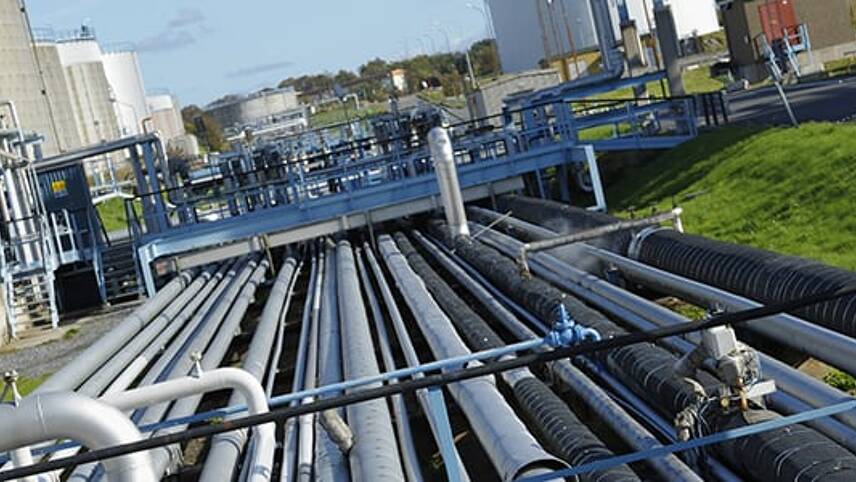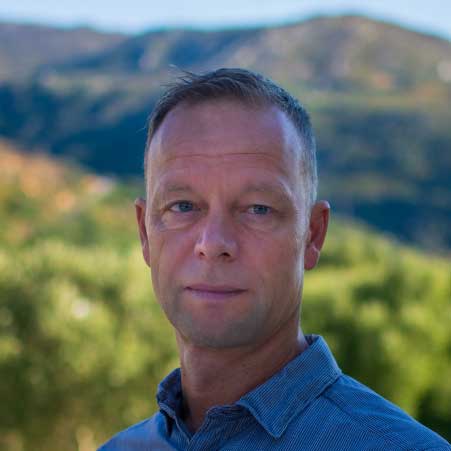This is the Sponsored paywall logged out

Georges Tijbosch, CEO of methane emissions certification standard for oil and gas, MiQ, discusses the change in momentum behind cutting emissions of ‘CO2’s forgotten sibling’ and how utilities can take inspiration from tech sector agility to tackle ‘physical complexities’.
What has been your career highlight thus far?
 Having been inspired to combat climate change for my two children and noticing the slow pace of societal adaption to a complex long-term problem, I put my retirement on hold to begin working with partners RMI and Systemiq to launch MiQ, using my experience of gas trading to find a way to accelerate methane emissions reductions from oil and gas – fast.
Having been inspired to combat climate change for my two children and noticing the slow pace of societal adaption to a complex long-term problem, I put my retirement on hold to begin working with partners RMI and Systemiq to launch MiQ, using my experience of gas trading to find a way to accelerate methane emissions reductions from oil and gas – fast.
What is the most significant way that today’s utilities sector differs from the one you first joined?
One significant difference is the momentum behind the movement to reduce methane emissions. Methane has been CO2’s forgotten sibling. Now, lots of utilities are thinking about methane emissions as part of Scope Three and setting themselves reduction targets.
Which other industry do you feel that utilities can learn most from when creating the conditions for innovation?
I think there is a lot that utilities can learn from the tech industry. The culture within the tech industry has its downfalls, but the idea of moving in an agile manner, taking risks while building out a bigger vision, and harnessing market power is something that the energy industry can learn from. I do unfortunately also note the tech industry overpromising or overhyping tech for the sake of it, rather than solving a real problem.
The utility industry does face the challenge of delivering energy in an increasingly complex geopolitical world. So, I believe it’s the combination of understanding this physical complexity with agile technology solutions which will determine the winners in the medium term.
What excites you most about the next 10 years in the utilities sector – any trends, tech or specific innovations?
I am excited about new technology and innovations that can better detect and monitor methane emissions. The technology has come a very long way over the last decade to become globally accessible and much more accurate. This involves laser-based monitoring, drones, fly overs, satellites and many more emerging technologies.
Secondly, I am very excited about greenhouse gas emissions becoming fully tradeable as attributes across the full supply chain – from production of gas to delivery into a combined cycle gas turbine or industrial usage. This will change patterns of trading and transacting, driving transparency, accountability, and incentives to abate emissions. Pricing drives the mass change – it’s been proven over and over again.
What do you think will be the defining factor in the UK hitting its net zero targets?
The UK needs to mobilise all near-term and high-impact actions, such as eradicating methane emissions from oil and gas this decade, to hit its net zero targets. I believe that governments, companies, and consumers need to harness the power of markets to accelerate this transition.
What do you think is the biggest challenge facing the utilities sector at present?
The Ukraine crisis and other global dynamics have created the biggest challenge I’ve ever seen the utilities sector face in my nearly 30 years in the industry. The age-old energy trilemma of security, affordability, and sustainability are still equally valid and has shifted in a seismic way over the course of 2022.
Which issues or opportunities within the industry don’t you feel get enough airtime?
This is easy. Methane has a global warming potential of more than 80 times greater than CO2 in a 20-year time frame. We already have the tools to abate around 75% of methane emissions from the oil and gas industry at little to no cost, providing a quick and effective way to mitigate climate change.
To put this into perspective, this is equivalent to taking roughly 1.2 billion polluting cars off the road. Methane emissions are the low-hanging fruit in the climate crisis and deserve so much more attention.
Please login or Register to leave a comment.